Arthur S. Hulnick
Specialist in Strategic and Business Intelligence
Arthur S. Hulnick, 82, a Frederick S. Pardee School of Global Studies associate professor emeritus of international relations, died on April 18, 2018.
A beloved teacher and colleague specializing in strategic and business intelligence, Hulnick established the study of intelligence at BU at what was then called the department of international relations and is now the Pardee School of Global Studies. He retired in 2015.
“Art Hulnick’s loss is felt very deeply here at the Pardee School,” says Dean Adil Najam. “He not only helped shape the intellect and careers of generations of students, he literally helped shape what is now the Pardee School. He was a dignified and wise persona. A man of few words, but blessed with a sharp and ready wit, deep insight, and much caring for his colleagues, his students, and the University. Art Hulnick will be dearly missed.”
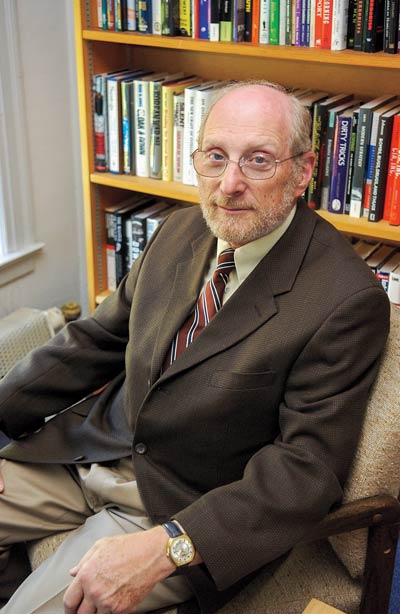
Photo by Kalman Zabarsky
Hulnick served as an intelligence officer in the US Air Force, where one of his first jobs was interviewing North Korean defectors. After completing his military service at the rank of captain, he embarked on a 28-year career in the CIA. In recognition of his service, he received the CIA’s Career Intelligence Medal. Among his noteworthy assignments were preparing briefings for presidents. He also served as the speechwriter for CIA director William Webster. His last assignment was as an officer in residence at Boston University before retiring in 1992.
“He was a professional in the CIA who was not afraid to speak the facts to power,” says Joseph Wippl, a Pardee professor of the practice of international relations and a former CIA officer. “He was a very engaged teacher with students on both the undergraduate and graduate level. He was always available to mentor MA thesis or policy papers.”
At BU, Hulnick enthralled students with his insights and explanations of the complexities of the world of intelligence. In 2001, he was recognized with the College of Arts & Sciences Award for Excellence in Student Advising.
He contributed to the field of intelligence studies through his teaching, articles, and books, Fixing the Spy Machine: Preparing American Intelligence for the Twenty-First Century (Praeger, 1999) and Keeping Us Safe: Secret Intelligence and Homeland Security (Praeger Security International, 2004). In 2011, he received a Distinguished Scholar Award for his academic work from the International Studies Association’s Intelligence Studies Section.
“Art Hulnick was one of the first people I met at BU,” says William Grimes, associate dean for academic affairs at the Pardee School. “He soon became a role model for me, thanks to his dedication to his students and his commitment to communicating not only the art and science of intelligence, but also the singular importance of professional ethics. Art was deeply opposed to the use of torture and believed strongly in the responsibility of intelligence professionals to determine and report the truth, no matter how inconvenient. His many former students now in the intelligence community could have asked for no better role model in that regard than Art himself.” — Chris Gambon
Rev. Merle R. Jordan
Former Danielsen Institute Director
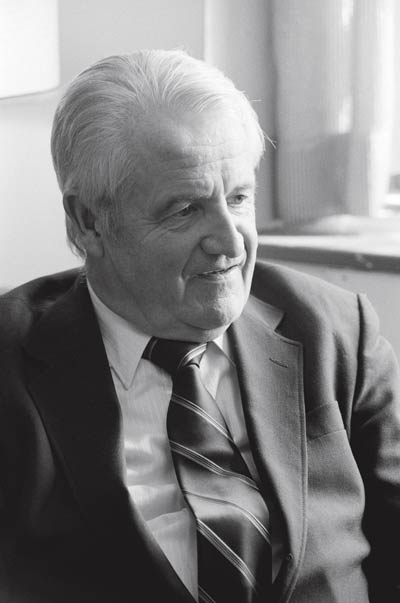
Photo by Kalman Zabarsky
Merle R. Jordan, 87, a School of Theology professor emeritus of pastoral psychology and former director of the Albert & Jessie Danielsen Institute, died on March 25, 2018.
Jordan earned a BA from Bowdoin College, where he was Phi Beta Kappa, and a BD from Andover Newton Theological School in 1956. He was ordained as a minister that year and served churches in Maine and California. In 1965, he earned a PhD in pastoral counseling from the Claremont School of Theology.
Jordan was assistant director of Los Angeles Baptist City Mission Society’s Pastoral Counseling Service from 1961 to 1966. From 1966 to 1969 he served as a missionary of the United Church Board for World Ministries and as associate professor of pastoral care and counseling at the Silliman University’s Divinity School in the Philippines.
He joined the STH faculty in 1969 as an associate professor of pastoral psychology. He served as executive director of the Danielsen Institute from 1972 to 1982 and as interim dean of STH from the fall of 1974 to the spring of 1977.
In 1970 Jordan founded the South Shore Pastoral Counseling Center in Hingham, Mass.
Jordan was a diplomate of the American Association of Pastoral Counselors, and held many offices in that organization at the national and regional levels. He was a fellow and supervisor in the American Association for Marriage and Family Therapy (AAMFT). In the early 1970s he was instrumental in reorganizing and revitalizing the Massachusetts chapter of the AAMFT, and served as president of the chapter for three years.
David Scott Palmer
Prominent Scholar of Latin America
David Scott Palmer, 80, a Frederick S. Pardee School of Global Studies professor emeritus of international relations and political science, died on April 28, 2018.
Palmer was a prominent scholar of Latin America and founder of the Latin American Studies Program at what was then the department of international relations and is now the Pardee School of Global Studies. He served as director of Latin American Studies; codirector of the Peru summer student exchange program, which he helped found; associate chair of the department of international relations; and chair of the political science department. He remained an active member of the school through the spring 2018 semester.
Palmer “was without question the driving force behind Latin American Studies at Boston University,” says Adela Pineda, director of the Center for Latin American Studies and an associate professor of Spanish. “He supported student initiatives, mentored junior faculty, and promoted academic exchange among Latin Americanists in Boston and around the world…. His contributions and guidance were decisive for the transformation of the Latin American Studies Program into a Center of Latin American Studies a year ago.”
He also was one of the founders of the Pardee School, says Dean Adil Najam. “His imprint is everywhere. Certainly, most profound in our Latin American Studies Program, but well beyond that. He was a gracious colleague, a kind advisor, a fierce advocate for students, a profound scholar, and, most of all, a truly dedicated teacher.”
Before joining the BU faculty, Palmer spent 12 years with the State Department as chair of Latin American and Caribbean Studies and as associate dean at the Foreign Service Institute. He also taught at several universities. He wrote prolifically on the subject he loved and was the author of more than 40 articles and book chapters on such topics as the Latin American military, democracy, and its challenges; guerilla movements in Latin America and Nepal; and the Peru-Ecuador border dispute and its resolution.
“Scott Palmer was an extraordinary man—exceptionally accomplished…but unfailingly modest and kind,” says William Grimes, associate dean for academic affairs at Pardee. “His scholarly and policy work speaks for itself, but the greatest hole he leaves for me is personal. Over the years, I had countless conversations with Scott about international relations, curricular and administrative issues, students, and family. I agreed with him much of the time, but enjoyed talking with him every time. To me, he was a real role model for how to live—he truly loved what he did as a scholar and teacher, to the extent that he never stopped either after he ‘retired’ in 2012. Perhaps most important, he always followed Immanuel Kant’s exhortation to treat people as ends, not means. His courtly manners reflected a genuine interest in others. And he showed his affection for his students not just by being the best teacher and advisor he could, but by inviting them to his home, giving them frequent flyer miles to travel for research, and listening with genuine care.” — Chris Gambon
Anthony Wallace
A Master Lecturer and Prize-Winning Writer
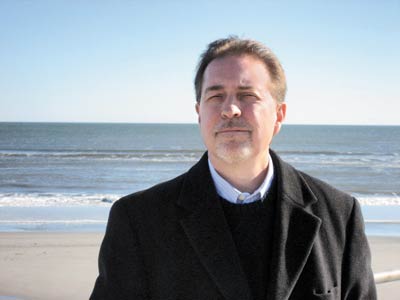
Photo by Allene Wallace
Anthony Wallace (GRS’99), 61, a master lecturer in the College of Arts & Sciences Writing Program, died on May 16, 2018.
An award-winning writer and a gifted teacher, Wallace earned a BA in English at Lafayette College. In 1980, he began working as a pit boss—a supervisor of table games—in Atlantic City. “I went to Atlantic City after college because the money sounded good, because it sounded like fun, and because I couldn’t think of anything better to do,” he told Bostonia in 2014. “I went to dealer’s school, dealt the games, and worked my way up. I stayed a lot longer than I expected to. They kept paying me, so I kept showing up—right up until the day I couldn’t push myself through the door.”
Wallace, who had published in a few literary journals, in 1998 applied to BU’s Creative Writing Program. After earning a master’s degree, he began teaching in the CAS Writing Program and continued to work on his fiction. In 2013, his story “The Old Priest” won a Pushcart Prize and a collection of the same title won the Drue Heinz Literature Prize. A year later, the book was a finalist for the PEN/Hemingway Award for debut fiction.
Wallace had worked on “The Old Priest” for 10 years before it was published, in 2011. “I always knew it was a good story—that I’d come up with something fairly original—but because it went unpublished for so long, I continued to work on it, and it continued to improve,” he told Bostonia.
“The original story was seven or eight pages, a portrait of somebody I knew, and it changed and expanded over a period of about five or six years. I sent out versions when it was 10 pages, 15 pages, 25 pages. The final version is 43 pages, and at some point, I began to see it as the title story of a collection.”
Wallace won a 2018 Pushcart for his short story “The Work of Art in an Age of Mechanical Reproduction.”
He and his colleague William Marx, a CAS senior lecturer in the Writing Program, established Theater Now and later the Arts Now program, an initiative that encourages faculty to bring students together outside of the classroom to engage with the arts. In recognition of their work, they received a 2013 CAS Award for Distinction in First Year Undergraduate Education.
Chris Walsh, director of the Writing Program, delivered the eulogy at Wallace’s funeral in May: “When an interviewer asked Tony how he balanced teaching and writing, he said he took ‘the approach that I’ll just give everything 100 percent to both, that energy generates more energy.’ And it did. He gave his all to his writing and his all to his students and colleagues.”




































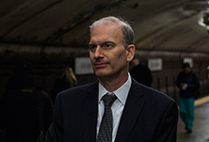

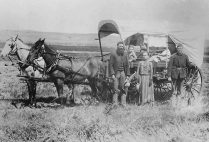









Related Stories
Office Artifacts: John Woodward
Pardee School prof shares CIA memorabilia
Professor Wins Guggenheim
Susan Eckstein will continue study of Cuban immigration
New Pardee School of Global Studies: Custodian of Old and Cherished Traditions
Interdisciplinary approach expands offerings and promise
Post Your Comment